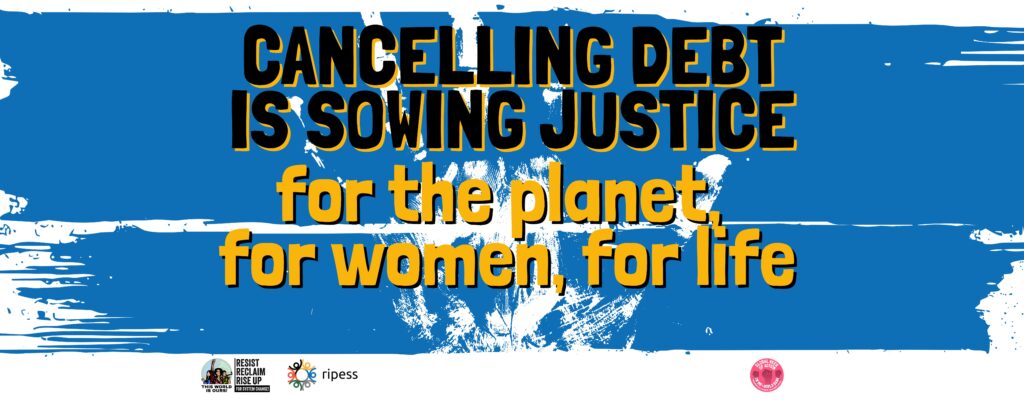
During Rural Women, Food Sovereignty and Poverty Eradication Week, RIPESS joins the campaign Stop the damage! Cancel the debt NOW!
Illegitimate debt, austerity policies and extractivist models imposed by the IMF, the World Bank and countries of the Global North continue to deepen the economic, climate and social crisis that particularly affects rural communities and women in the Global South.
While governments allocate more resources to interest payments than to education, health or food, rural women sustain life: they care for the land, preserve biodiversity and feed their communities. However, debt and extractivism rob them of their livelihoods, their time and their decision-making power.
That is why RIPESS (Intercontinental Network for the Promotion of Social and Solidarity Economy) is joining this global mobilisation to demand economic, climate and gender justice.
Read and join the collective statement.
An economic architecture that deepens inequalities
The current global economic and financial architecture —shaped by fiscal, debt, trade and climate policies— systematically deepens gender and intersectional inequalities among the communities with which RIPESS works.
These dynamics manifest themselves on multiple interconnected fronts:
- Harmful fiscal and tax policies. Austerity measures and regressive taxation weaken the capacity of states to finance public services and social protection systems. This directly affects women and marginalised groups, who depend on these services to access health, education, care and basic rights.
- Debt and structural adjustment. Cycles of unsustainable debt and structural adjustment programmes imposed by international financial institutions require cuts in essential sectors. Debt is prioritised over life, reducing the fiscal space needed for policies of equality, social justice and ecological transition.
- Trade and extractivism. Trade agreements and extractivist models privilege large corporations over local economies. This erodes food sovereignty, weakens sustainable agricultural practices and limits the economic and political power of women in their communities.
- Climate crisis and exclusion. The communities least responsible for climate change — mostly rural, indigenous and feminised — suffer the most severe impacts while being systematically excluded from decision-making on climate and energy transition.
- Tax evasion and the debt cycle. Corporate tax evasion and avoidance drain public resources, exacerbating debt and justifying austerity policies that reduce social spending and prevent effective climate action. This vicious cycle hits women and historically marginalised communities the hardest.
Debt is a matter of justice
Cancelling debt means freeing the peoples of the South from the cycle of dependence and perpetual impoverishment.
It is also a matter of feminist and ecological justice, because debt disproportionately affects women and destroys the ecosystems that sustain life.
Conditional loans, the privatisation of public services and the expansion of extractive projects push millions of people into hunger and poverty.
There can be no food sovereignty or just transition while debt continues to suffocate our economies.
Rural women: at the heart of the just transition
In all territories, rural women and Social and Solidarity Economy (SSE) organisations are building concrete alternatives: agroecological cooperatives, community water and energy systems, care networks and local economies based on solidarity and sustainability.
They demonstrate that the just transition starts from the bottom up, from communities that sow autonomy and justice every day. That is why we demand reparations and public financing that is not based on debt, to strengthen these initiatives that feed the planet and care for life.
Discover how the experiences and struggles of those who, from their territories, make the transition to Food Sovereignty possible through the Social and Solidarity Economy (SSE).
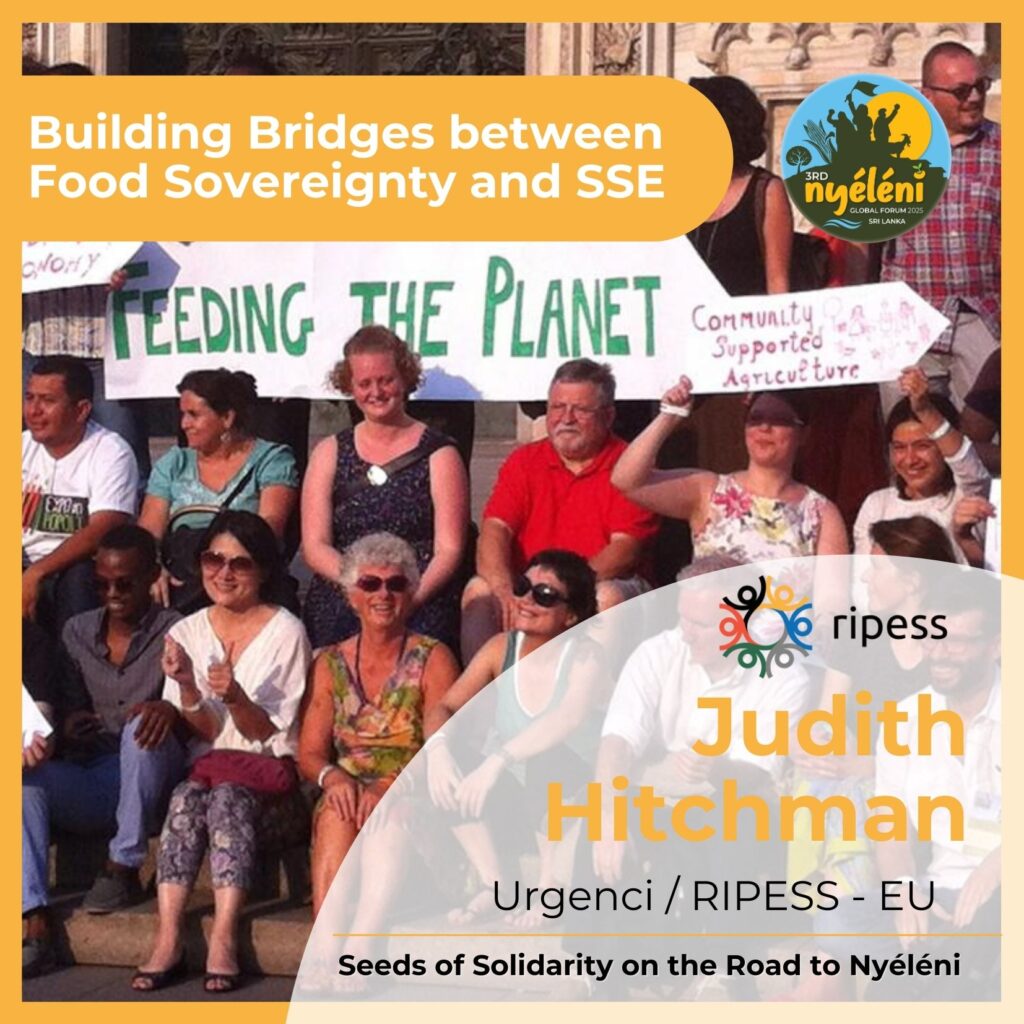
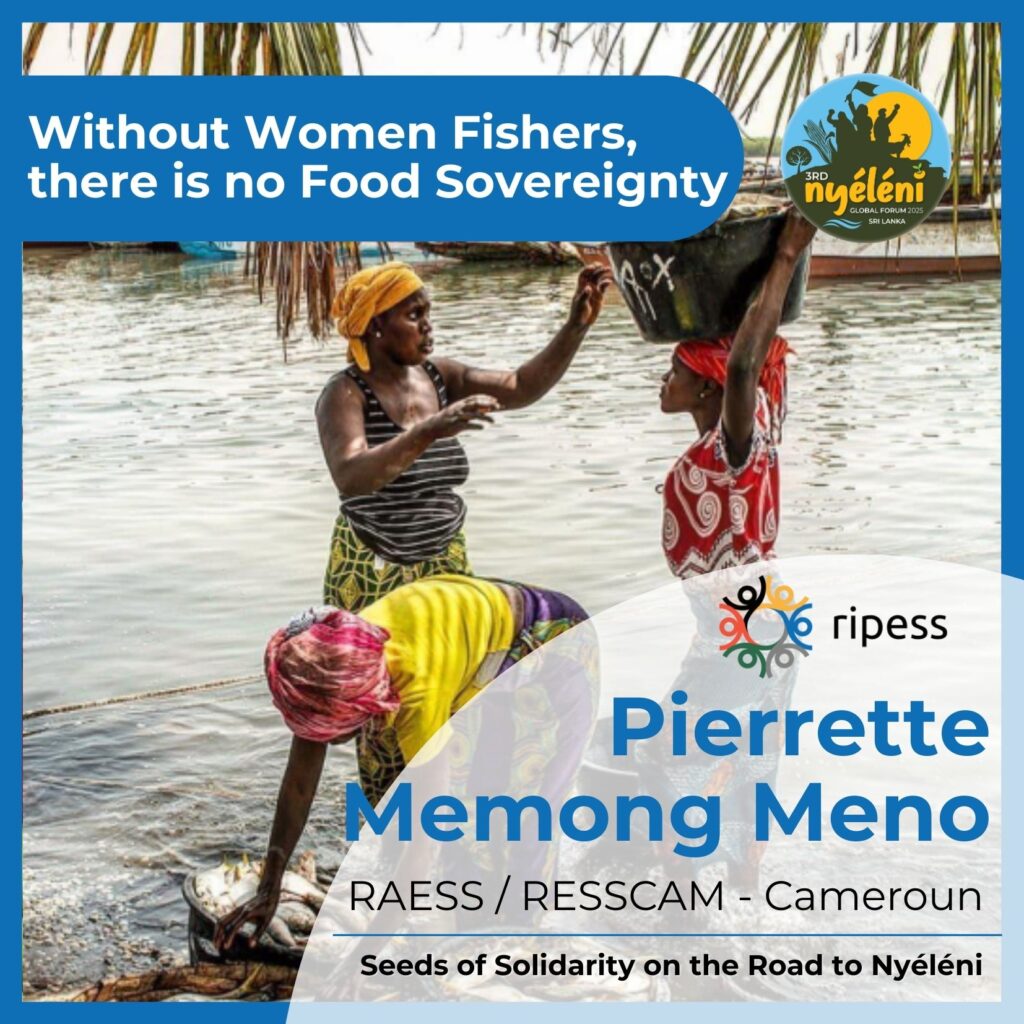
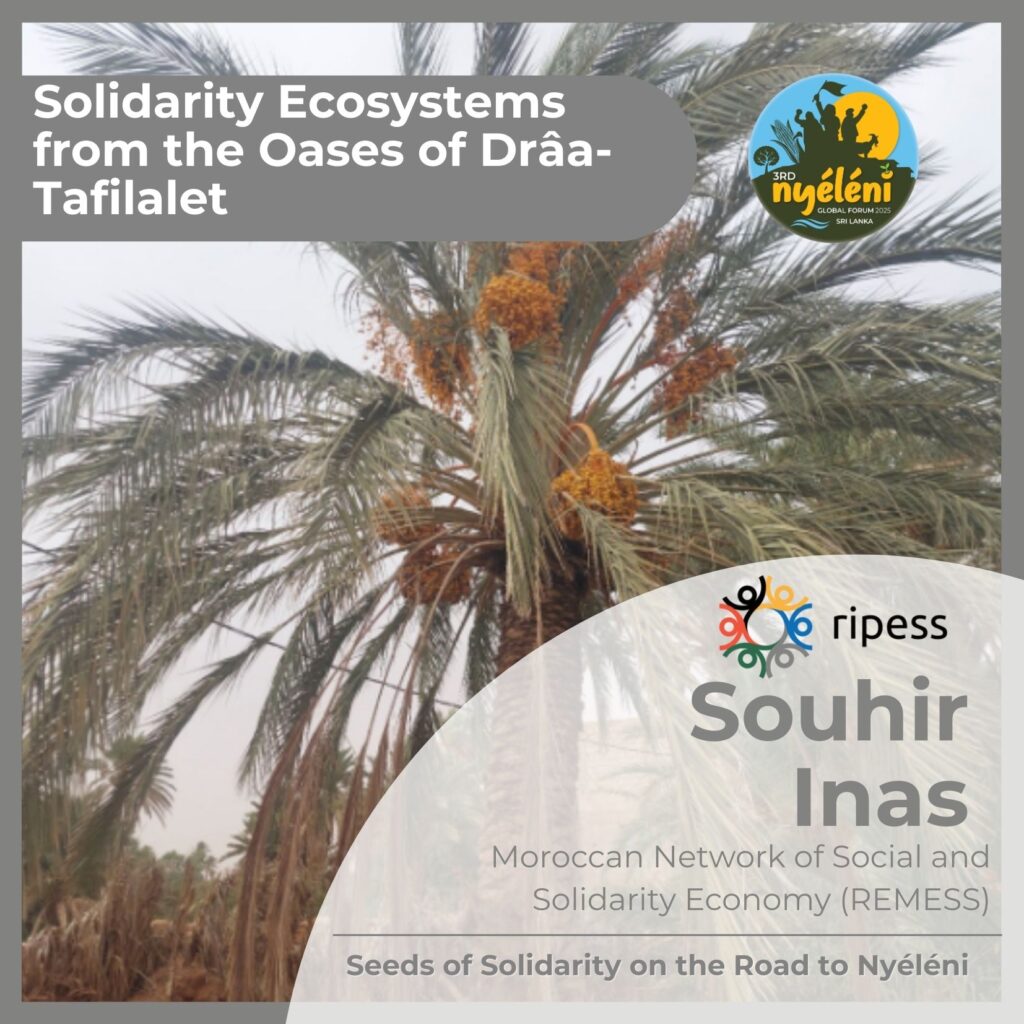
Judith Hitchman: Building Bridges between Food Soverignty and Social Solidarity Economy
Urgenci / RIPESS Europa
To read this story, click here.
Elise Pierrette Memong Meno: Without women fishers, there is no Food Sovereignty
RAESS / RESSCAM – Cameroun
To read this story, click here.
Souhir Inas : Solidarity Ecosystems from the Oases of Drâa-Tafilalet
Moroccan Network for the Social and Solidarity Economy (REMESS)
To read this story, click here.
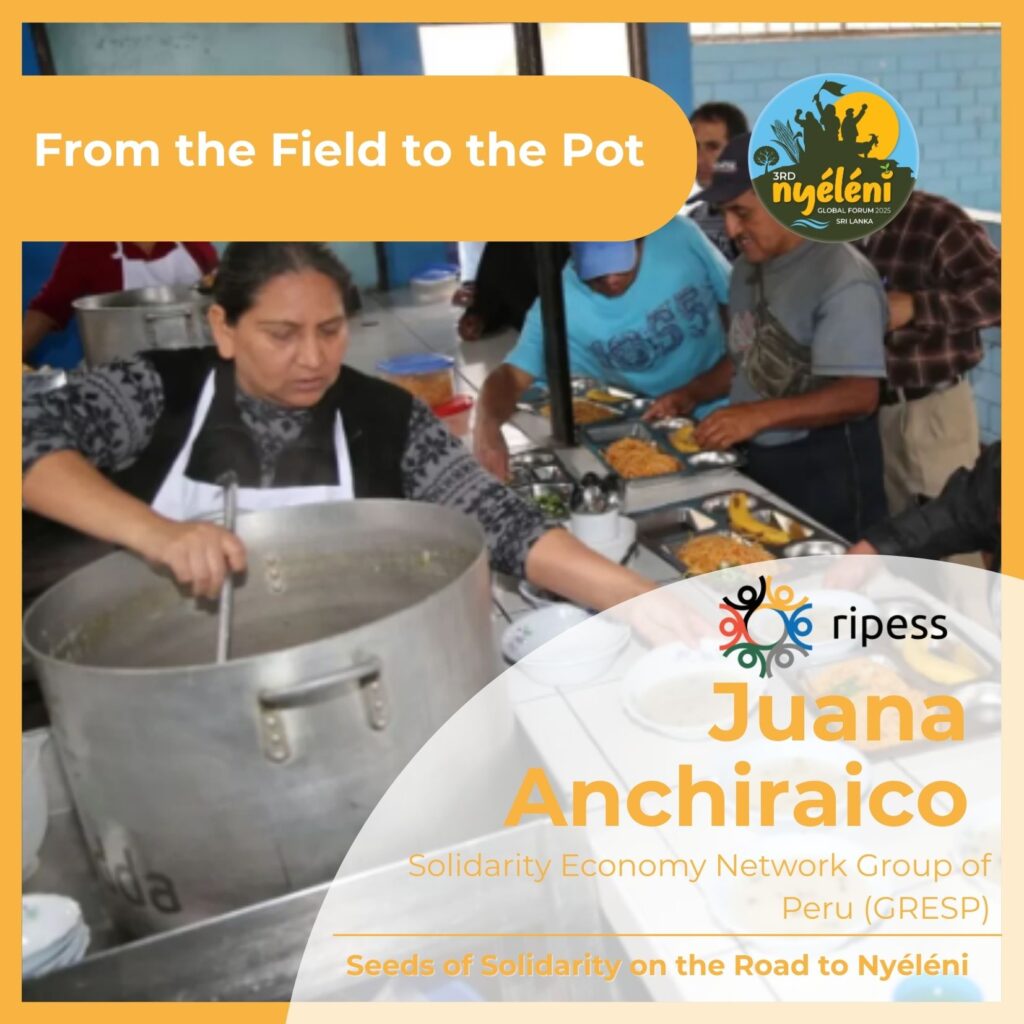
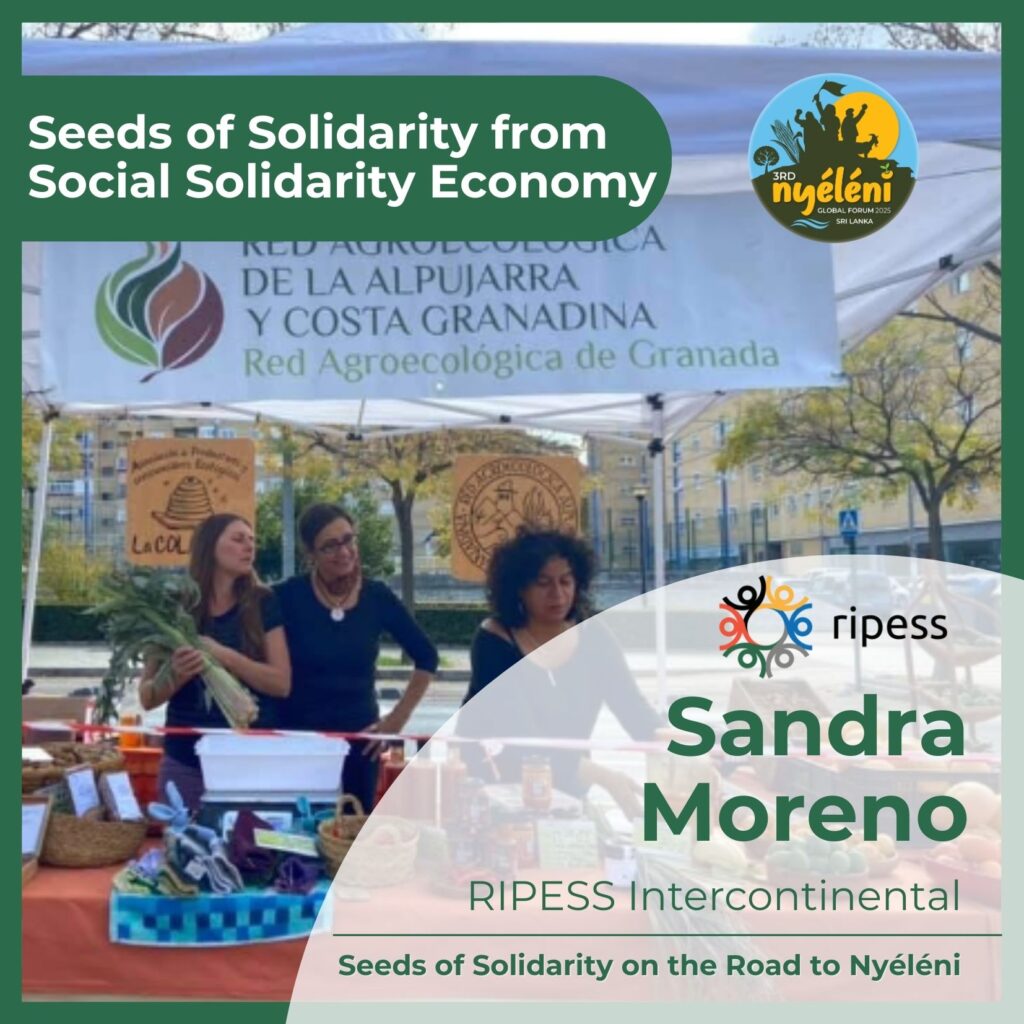
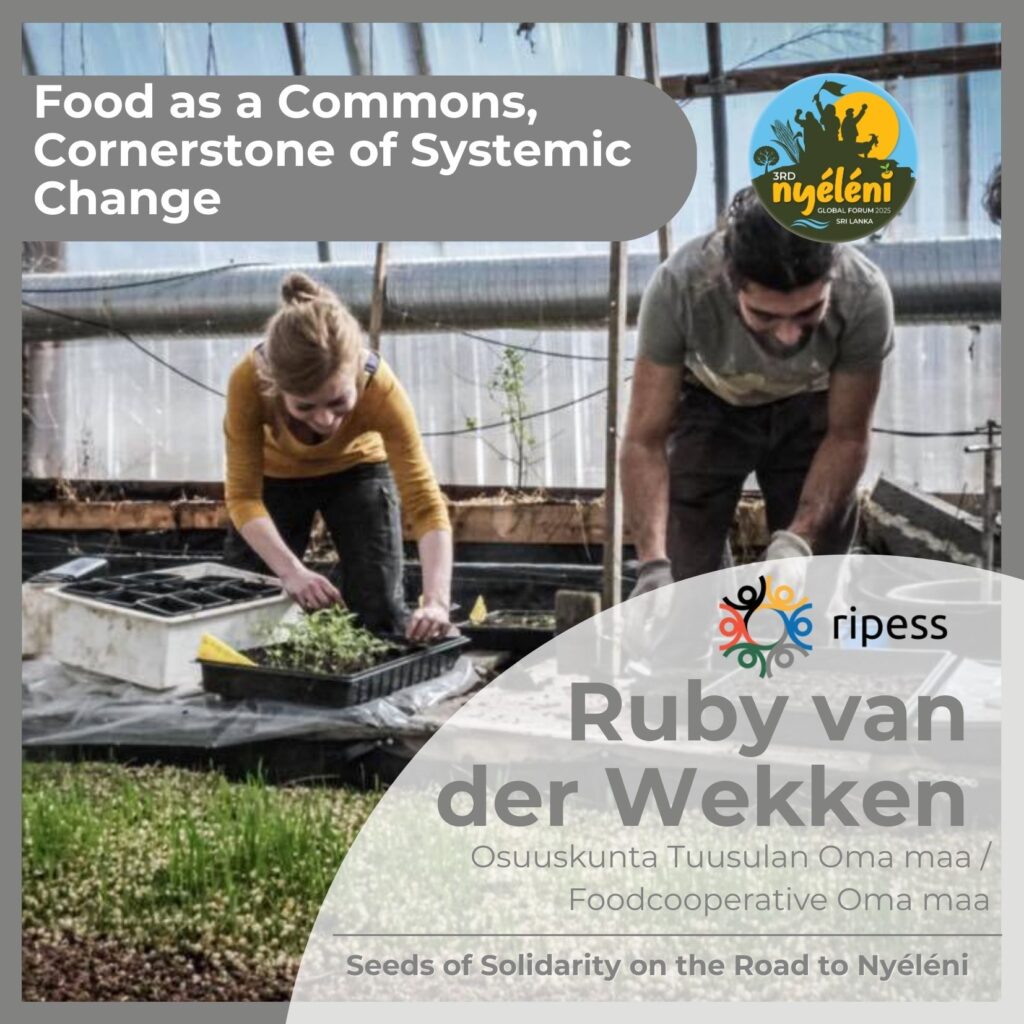
Juana Anchiraico: From the Fiels to the Pot
Solidarity Economy Network Group of Peru (GRESP)
To read this story, click here.
Sandra Moreno Cadena: Seeds of Solidarity from Social Solidarity Economy
RIPESS Intercontinental
To read this story, click here.
Ruby van der Wekken: Foos as a Commons, cornerstone of Systemic Change
Foodcooperative Oma maa
To read this story, click here.
Global Week of Action | 13–18 October 2025
Join the actions of the Global Week of Action (GWoA) and amplify the voices of those who sustain life. Between 15 and 17 October, we will coincide with International Rural Women’s Day, International Day of Action for People’s Food Sovereignty and International Day for the Eradication of Poverty, to say with one voice:


